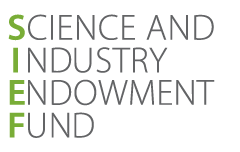John Stocker Postgraduate Scholarships and Postdoctoral Fellowships review
Background
The SIEF Promotion of Science Special Purpose was established to address SIEF’s fundamental purposes: to aid in the training of students in scientific research, and to assist persons engaged in scientific research. This was achieved by providing scholarships and fellowships for research, creating a pipeline of STEM talent from undergraduate through to postdoctoral researchers.
The John Stocker Postdoctoral Fellowships and Postgraduate Scholarships were established in 2010 and named after Dr John Stocker in recognition of his role in the rejuvenation of the SIEF during his time as Chairman of the Board of CSIRO, as well as his personal support for the development of the WLAN technology during his time as former Chief Executive of CSIRO which made the rejuvenation of the Fund possible.
Preference for the fellowships and scholarships was to be given to collaborative projects between publicly funded research agencies and university investigators.
Five rounds of funding were offered for the postdoctoral fellowships and four rounds of funding for the postgraduate scholarships. In total, 32 fellowships and 16 scholarships were offered.
Characteristics of the Program
Gender diversity of the fellows and students was consistent with national statistics for gender diversity in STEM disciplines; Males were represented in higher numbers for both schemes.
Career breaks were supported by SIEF such as for parental leave and the scheme offered the flexibility for awardees to suspend the SIEF fellowship to undertake additional fellowships.
Publications by the John Stocker fellows and students as an output of research was 0.39 and 0.24 journal articles per year per fellow and scholar respectively.
Close monitoring of the fellows’ and students’ activities through annual reporting ensured that the learning and development plans placed strong emphasis on non-technical learning. The aim was to develop the fellows and scholars into well rounded researchers with broad skill sets who were well equipped for careers in research and beyond, and able to contribute effectively to the National Innovation System. Supervisors were also educated in the importance of non-technical training to the development of their fellow/student in addition to their training as researchers.
Impacts of the program
SIEF support helped ECRs address some of the barriers they faced in the early stages of their professional careers. They gained new skills, work experience and opportunities for collaboration which in turn improved their prospects for obtaining further employment in the research sector and enhanced their longer-term career prospects. These characteristics set the SIEF programs apart from other fellowships and scholarships on offer.
The monitoring and evaluation undertaken by SIEF Management ensured accountability of the grant recipients in offering their fellows and students a quality experience and a supportive environment that encouraged them to develop into high performing early career researchers.
The majority of projects aligned with the Australian Government’s Science and Research Priorities, thus providing benefit to Australia.
Thirty-seven organisations were involved in the fellowships and scholarships. All completed projects were collaborative, enhancing opportunities for the John Stocker fellows and students to develop connections with other organisations and expand their networks.
The vision of the John Stocker postgraduate scholarships and John Stocker postdoctoral fellowships was to have industry focus and engagement. This requirement led the way in facilitating greater industry engagement with research organisations. The lessons learnt from the John Stocker postdoctoral fellowship program led to the creation of the STEM+Business fellowships program also funded by SIEF and administered by CSIRO. Its success is evidenced by the strong uptake and excellent project outcomes including products, patents and publications as well as consistent career advancement for the fellows, many of whom continue to collaborate with the small to medium enterprises that were involved in the fellowships, after their completion.
The report concluded that the John Stocker Postgraduate Scholarships and Postdoctoral Fellowships provided significant opportunities for early career researchers and a boost for the Australian innovation system. John Stocker fellowships and scholarships have been successful in providing mentoring and advice to ECRs, helping them to develop collaborative relationships, improving their career mobility and enhancing both their technical and non-technical skills, develop their research track record and establish their research careers. The program contributed to the Australian innovation system by developing well rounded and connected early career researchers that have contributed to new knowledge of benefit to Australia. The students and fellows benefitted from the focus on learning and development that included non-technical areas of research, the focus for collaborative projects, and the building of linkages between research organisations and industry. The John Stocker program offered a point of difference to other fellowships and scholarship programs through its focus on collaborative and industry focussed projects. The learnings from the John Stocker program have led to the establishment of a highly successful and impactful SIEF STEM+Business Fellowships program which is contributing to building deep connections between SMEs and research organisations.
